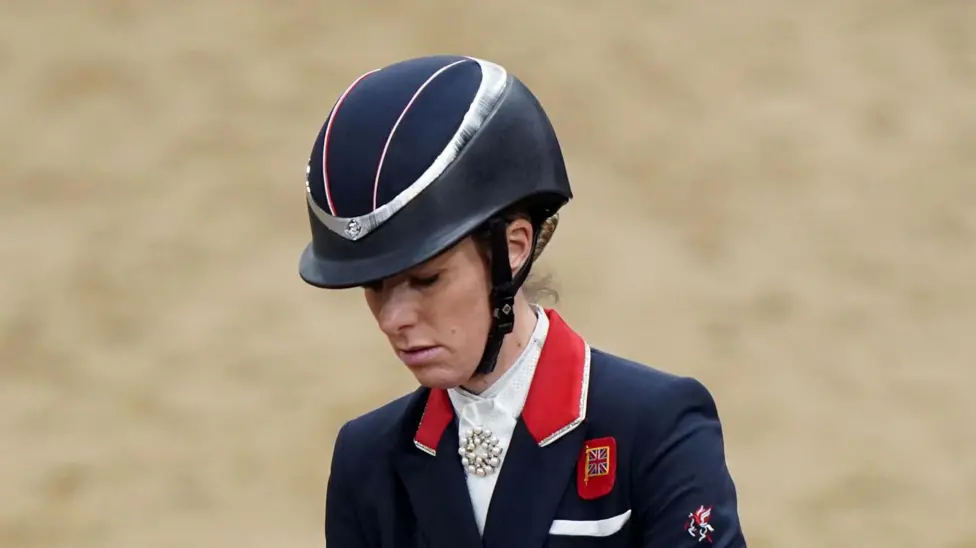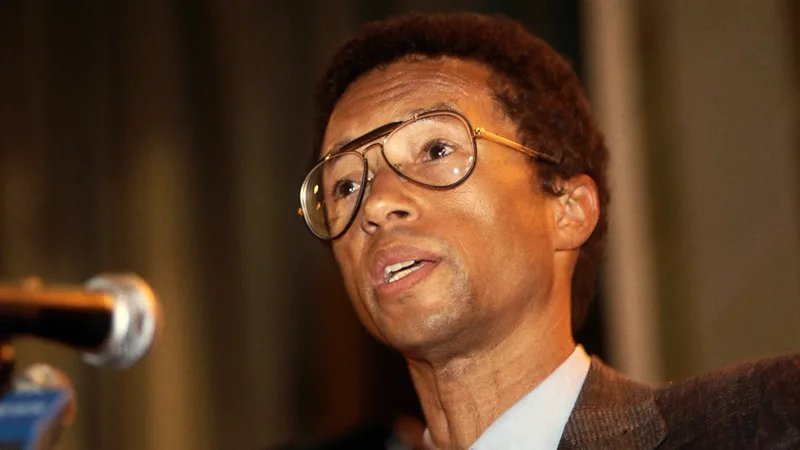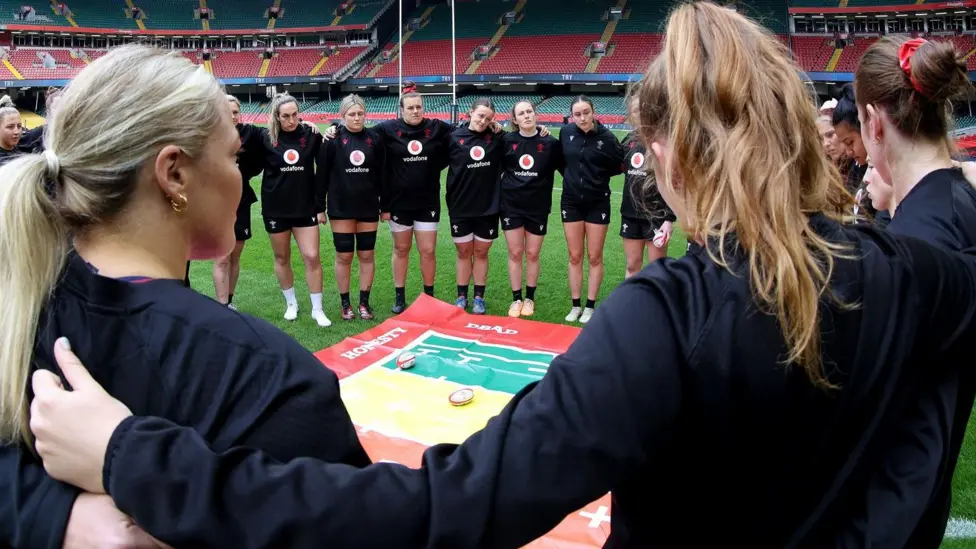Sports
Dujardin handed one-year ban for whipping horse

Three-time Olympic dressage gold medallist Charlotte Dujardin says she will “forever aim to do better” after she was banned for one year and fined 10,000 Swiss Francs (£8,886) for “excessively” whipping a horse.
Video footage emerged in July – just days before the start of the Paris 2024 Olympics – of the 39-year-old repeatedly striking the horse with a long whip around its legs.
Dujardin’s international ban, handed out by the FEI – the world governing body of equestrian sports – is backdated to the start of her provisional suspension and she will be eligible to compete again from July 2025.
British Equestrian and British Dressage have also backed the suspension, preventing Dujardin from competing in national competition or training events during the same period.
“I fully respect the verdict issued by the Federation for Equestrian Sports (FEI), released today,” Dujardin said.
“As the federation has recognised, my actions in the video do not reflect who I am and I can only apologise again. I understand the responsibility that comes with my position in the sport, and I will forever aim to do better.
“This has undoubtedly been one of the darkest and most difficult periods of my life, and I would like to take this opportunity to thank everyone who has supported me during this time.”
Dujardin’s six Olympic medals, comprising three gold, a silver and two bronze, are the joint most of any British female Olympian, alongside former track cyclist Dame Laura Kenny’s five golds and a silver.
Dujardin was provisionally suspended on 23 July for “engaging in conduct contrary to the principles of horse welfare”, one day after the FEI received a video showing her excessively whipping a horse during a training session at a private stable.
The FEI said the footage of the training session did not constitute any other rule violations and added that there have not been any further complaints raised against Dujardin’s conduct since the video emerged.
“These significant sanctions send a clear message that anyone, regardless of their profile, who engages in conduct that compromises the welfare of the horse will face serious consequences,” FEI secretary general Sabrina Ibanez said.
“We believe this outcome reaffirms the FEI’s commitment to equine welfare and to its role as guardian of our equine partners.”
Ibanez added it was “regrettable” the case had put the sport in the news for “all the wrong reasons” leading up to the Paris Games but said the FEI had acted decisively by starting an investigation and imposing a provisional suspension on the video emerging.
Dujardin withdrew from the Paris 2024 Olympics, where she was due to represent Team GB, after admitting she was the person in the video.
UK Sport says Dujardin is “ineligible to receive public funding and publicly funded benefits” while she serves her suspension and any future funding beyond the FEI sanction “will be reviewed”.
Chief executive of British Equestrian, Jim Eyre, said the welfare and ethical treatment of horses “has always been a priority”.
“We will continue to work with our member bodies tirelessly to uphold the integrity of our sports through enforcement, education, and advancement in our knowledge,” he added.
And British Dressage said it is “united with the FEI in taking a zero-tolerance approach” regarding mistreatment of horses.
“We launched the charter for the horse last year and remain totally committed to upholding these standards,” chief executive Jason Brautigam said.
“Working closely with our colleagues across the federation, we will continue to collectively put the health, care and wellbeing of the horse at the heart of everything we do, and proactively demonstrate that equestrian sport is conducted in an ethical and responsible way.”
International
‘I’m not afraid of dying’: The pioneering tennis champion who told the world he had Aids

In 1988, World Aids Day began with the aim of raising awareness and understanding of a disease that had struck fear in communities around the globe. That same year, US tennis legend Arthur Ashe learned of his own diagnosis. In History looks at the dilemma that faced Ashe, when, after years of secrecy, he once again became a groundbreaking campaigner.
In April 1992, Arthur Ashe made his way into a packed conference room, where the media were poised with cameras rolling. This time he wasn’t being asked about his role as the first black tennis player to be selected for the United States Davis Cup team, or about his pioneering victories at Wimbledon, the US Open or the Australian Open. He had cemented his name in history as the first black winner of a major men’s singles championship, but after a heart attack that led to multiple surgeries, he had retired from the sport 12 years earlier, at the age of 36.
His intelligence, composure and sportsmanship had made him a popular figure, on and off the court. But the press had heard rumours about his health, at a time when the world was still full of fear of an incurable epidemic. USA Today sports journalist Doug Smith, a childhood friend, confronted Ashe about a tip-off he had received. The next day, keen to control his own story and beat the press, Ashe reluctantly told the world the secret that he and his inner circle had kept since 1988: he had Aids.
2:49
WATCH: ‘Maybe there is no cure for Aids in time for me, but certainly for everybody else’.
He believed that he had contracted the illness from a contaminated blood transfusion during surgery in 1983, two years before blood donations were screened for the HIV virus in the US. The devasting news shocked the nation, but it quickly led to a debate around personal privacy and the ethics of an invasive press. At the conference, Ashe read a statement: “I am angry that I was put… in the unenviable position of having to lie if I wanted to protect my privacy.” He added that “there was certainly no compelling medical or physical necessity to go public with my medical condition”. In his memoir, Days of Grace, Ashe wrote: “More than 700 letters reached USA Today on the issue of my right to privacy, and about 95% vehemently opposed the newspaper’s position.”
Some Aids activists criticised Ashe’s desire for secrecy around his health, as they wanted public figures to broaden discussion beyond the focus of the LGBT+ community. Some felt that he would have been the perfect spokesperson to raise awareness, particularly amongst heterosexuals and minority groups: one letter went as far as to say that Magic Johnson, the NBA player who revealed his HIV diagnosis just five months earlier, could have been saved had Ashe spoken up sooner.
When asked at the news conference why he didn’t go public in 1988, Ashe said: “The answer is simple. Any admission of HIV infection at that time would have seriously, permanently, and – my wife and I believed – unnecessarily infringed upon our family’s right to privacy.” When the subject turned to telling his five-year-old daughter Camera about having the disease, emotion overcame Ashe, and his wife Jeanne read on his behalf.
Sports
Welsh Rugby Union to appoint women’s lead in 2025

The yet-to-be appointed new coach of Wales women will report into a women’s rugby lead, a role the Welsh Rugby Union (WRU) intends to establish in 2025.
That new role is being created in the wake of Nigel Walker’s departure as the governing body’s executive director of rugby. Before his exit, Ioan Cunningham left his role as Wales women head coach.
The governing body stated: “The high profile role will directly manage the Wales women head coach as well as set and implement strategy for the women’s and girls’ game across Wales and form an integral part of the WRU’s high-performance team”.
Walker stepped down following what the WRU described as a “meticulous and far-reaching review” into the high-performance element of the men’s game, with Warren Gatland continuing as head coach of the Wales men’s side despite a record 12-Test losing run.
Walker, chief executive Abi Tierney and chair Richard Collier-Keywood have overseen a turbulent period in the WRU’s history, with Welsh rugby’s governing body saying in November it would apologise for its handling of contract negotiations with the senior women’s team after admitting “serious failings”.
Collier-Keywood said that Walker, who was involved in the initial negotiations, had accepted “things should have been done better”.
The row came less than a year after a damning independent review into the WRU’s culture following a BBC Wales investigation found it was sexist, misogynistic, racist and homophobic, with those aspects not properly challenged.
The WRU has now published its full report into its governance of the women’s game.
As a result, the governing body also announced:
Changes to the way future negotiations are constructed, maximising transparency and enabling all parties to be properly represented. This includes the idea that players may need and require independent third-party involvement during negotiations and an acknowledgment that pathway players need to also be provided for in future.
A central premise is to be established where contracted players are treated as primary employees of the WRU, even where other club or employment contracts are also present.
To assess values and culture in the Women’s squad, reset professional working practices and put in place engagement work (‘Have a Voice’ sessions have already started) which helps support the mental and physical well-being of all colleagues
To continue to benchmark the WRU’s progress against other governing bodies, rugby leadership and performance management
Sports
Slam success & ranking rises – how British tennis thrived in 2024

For almost two decades, Andy Murray has been the benchmark of British tennis success.
The former world number one hanging up his racquet has allowed others to grab a greater share of the limelight.
As the nation’s leading players prepare for the new season, BBC Sport reflects on the British success stories in 2024 – and you can choose the player who has impressed you the most.
-

 Entertainment4 months ago
Entertainment4 months agoEarthquake scientists are learning warning signs of ‘The Big One.’ When should they tell the public?
-

 International4 months ago
International4 months agoTarar accuses Imran Khan of conspiring with Faiz Hameed to destabilise Pakistan
-

 International2 months ago
International2 months agoPTI Announces Not to Boycott New Committees
-

 Business3 months ago
Business3 months agoMajor Corruption Scandal Uncovered at WASA Multan: Rs1.5 Billion Embezzlement Exposed
-

 Business4 months ago
Business4 months agoThe Impact of QR Codes on Traditional Advertising
-

 Business4 months ago
Business4 months agoThe Benefits and Problems of International Trade in the Context of Global Crisis
-

 Business4 months ago
Business4 months agoFraud by Pakistani Firm Sparks Outrage in Business Community; Concerns Rise Over International Investment
-

 Business2 months ago
Business2 months agoHigh Court Blocks MDCAT Merit List Amid Controversy Over Exam Error





